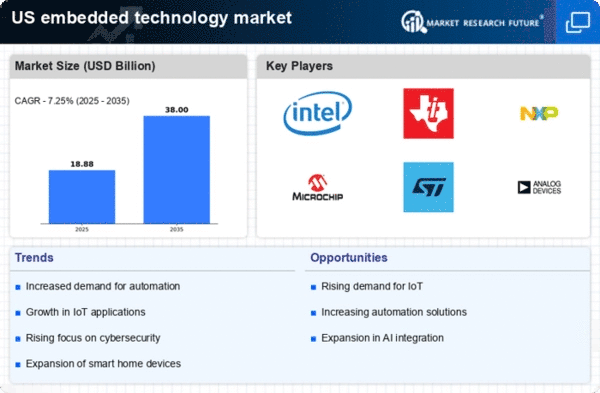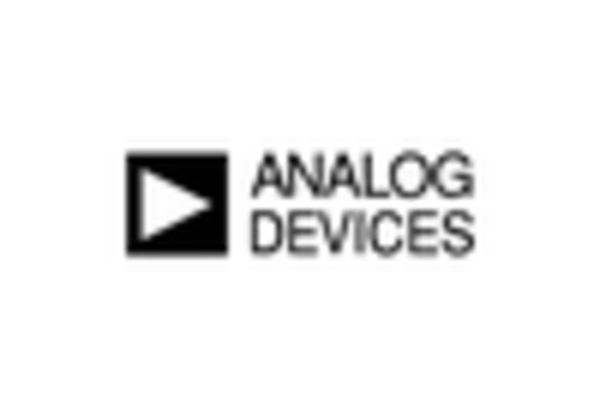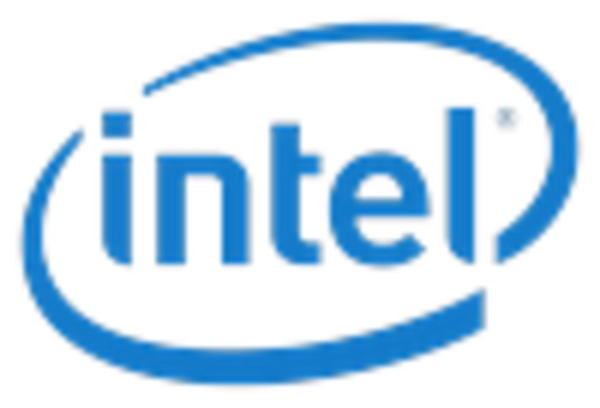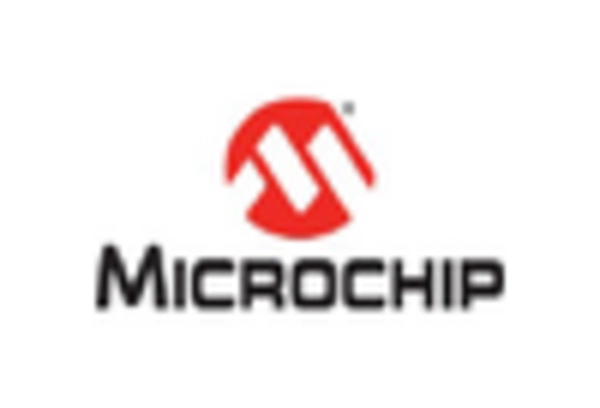Emergence of Edge Computing
The rise of edge computing is reshaping the embedded technology market, as organizations seek to process data closer to the source rather than relying solely on centralized cloud systems. This shift is particularly relevant in applications requiring low latency and real-time data processing, such as in smart cities and industrial IoT. The embedded technology market is expected to benefit from this trend, with projections indicating that edge computing could account for nearly 25% of the overall market by 2026. By enabling faster decision-making and reducing bandwidth costs, edge computing enhances the capabilities of embedded systems. As more devices become interconnected, the demand for efficient data processing solutions will likely drive innovation and growth within the embedded technology market, fostering a new era of intelligent applications.
Increased Investment in R&D
Investment in research and development (R&D) within the embedded technology market is witnessing a significant uptick, as companies strive to innovate and maintain competitive advantages. This trend is particularly evident in sectors such as telecommunications, automotive, and healthcare, where advanced embedded systems are crucial for product differentiation. In 2025, R&D spending in the technology sector is projected to exceed $200 billion, with a substantial portion allocated to embedded systems. This investment is likely to lead to breakthroughs in areas such as artificial intelligence, machine learning, and real-time data processing, which are essential for the next generation of embedded applications. As organizations prioritize R&D, the embedded technology market is expected to benefit from enhanced product offerings and improved performance metrics, ultimately driving market growth and expanding application areas.
Growth in Industrial Automation
The embedded technology market is significantly influenced by the growth of industrial automation, as manufacturers seek to enhance efficiency and reduce operational costs. The adoption of embedded systems in industrial applications is projected to grow at a CAGR of approximately 8% through 2028. This growth is driven by the need for real-time monitoring, predictive maintenance, and improved process control. Industries such as manufacturing, energy, and logistics are increasingly implementing embedded solutions to optimize their operations. The integration of IoT and embedded technology allows for seamless communication between machines, leading to smarter factories and improved productivity. As companies continue to invest in automation technologies, the embedded technology market is likely to expand, providing innovative solutions that address the evolving needs of the industrial sector.
Surge in Demand for Smart Devices
The embedded technology market experiences a notable surge in demand for smart devices, driven by the increasing consumer preference for automation and connectivity. As households and businesses adopt smart technologies, the market for embedded systems is projected to grow significantly. According to recent data, the market is expected to reach approximately $200 billion by 2026, reflecting a compound annual growth rate (CAGR) of around 10%. This trend indicates a robust expansion in sectors such as home automation, wearables, and smart appliances, all of which rely heavily on embedded technology. The integration of advanced sensors and microcontrollers in these devices enhances functionality and user experience, thereby propelling the embedded technology market forward. Furthermore, the proliferation of mobile applications that interface with these smart devices further fuels this demand, creating a symbiotic relationship between software and hardware innovations.
Expansion of Automotive Embedded Systems
The automotive sector is undergoing a transformation, with embedded technology playing a pivotal role in the development of advanced driver-assistance systems (ADAS) and autonomous vehicles. The embedded technology market is projected to see substantial growth in this area, with estimates suggesting that the automotive segment could account for over 30% of the total market by 2027. This growth is fueled by the increasing demand for safety features, connectivity, and enhanced user experiences in vehicles. As manufacturers integrate more sophisticated embedded systems, the complexity and functionality of automotive applications are expected to rise. This trend not only enhances vehicle performance but also aligns with regulatory requirements for safety and emissions, thereby driving further investment in embedded technology within the automotive industry.















